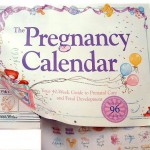Getting pregnant and using a pregnancy calendar
Getting pregnant
 Getting pregnant is the most natural thing in the world and for many it can happen with no trouble at all, while for others it can take months and even years of trying. However there are some good tips to follow to help the process along.
Getting pregnant is the most natural thing in the world and for many it can happen with no trouble at all, while for others it can take months and even years of trying. However there are some good tips to follow to help the process along.
The most important, and obvious, is to have sex regularly. Three times a week is ideal. Try to time this with when you think you are ovulating although remember that not every woman’s cycle is completely regular so it is best to not limit when you have sex to the exact days you think you might be most fertile. Invest in an ovulation prediction kit or fertility monitor to help with your timings for getting pregnant.
Make sure you choose the right sexual position. Give gravity a helping hand with the missionary position and, if possible, remain lying down or even better elevate your hips with a pillow after sex.
Keeping healthy will help. Avoid alcohol, drugs and smoking as this can affect fertility and can harm your unborn baby if you do fall pregnant.
Using a pregnancy calendar
An online week-by-week pregnancy calendar is an excellent way to follow the growth of your baby from a small collection of tiny cells to a fully formed being ready to enter the world. Not every pregnancy is the same, but the huge majority follow a distinct enough pattern to be able to create a useful guide to what is going on.
A good pregnancy calendar will tell the expectant mum all the changes she is likely to experience over the months, from swollen ankles, stretch marks, heartburn to Braxton Hicks and the onset of real labour.
More fascinating still, the pregnancy calendar will give you an insight into what is happening inside to your baby. It will be able to tell you the size at every stage, when the organs and limbs are developing and even the likely moment when your baby becomes a little boy or a little girl.
For the father-to-be, following the baby’s development can be an excellent way of getting more involved with the whole process.
It can also be a good idea to keep a personal diary alongside the pregnancy calendar to take note of any special feelings or symptoms you might be experiencing. Compare and contrast what the guide says and what you are going through, making a note of any particular concerns you have to discuss with your midwife or GP during the routine check-ups.


